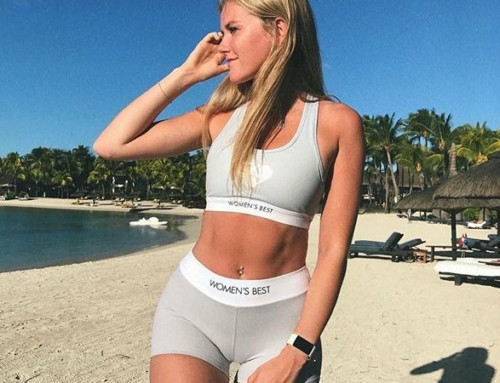
Devonté Hynes on stage in March 2016. Hynes’ third album as Blood Orange, Freetown Sound, was released on June 28. Neilson Barnard/Getty Images hide caption
toggle caption Neilson Barnard/Getty Images
Freetown Sound captures Devonté Hynes at a crucial moment in the building not just of a distinguished career, but also of an artistic persona that bares the complications of an uncommon star. He’s London-born and lives in New York. Chocolate complexioned, braided and lanky, he’s physically the kind of guy perceived as a threat to white safety; a reality he sings about in this exceptionally eloquent and yet dreamlike new album released under his current solo moniker Blood Orange. He’s also a classically educated musician who records for Domino, a quintessential British indie, and has written for and produced, among many others, Britney Spears. A dancer and choreographer fond of ball culture’s vogueing stances, he’s tweeted that he’s “not gay,” but “not straight” either. Instead, Hynes is heir to cross-disciplinary, nearly indefinable mavericks like Prince, David Bowie and Michael Jackson whose talent burned so brightly it consumed mundane notions of sex and race.
Lest you consider that hyperbole, consider last year’s standalone single, “Sandra’s Smile,” a brooding beat ballad that employs a universal Jackson-ian language to articulate particularly African-American sorrows over the death of Sandra Bland, the similarly unjust outcry when Sybrina Fulton refused to forgive the unrepentant killer of her son Trayvon Martin and how these tragedies traumatize Hynes. “Who taught you to breathe, then took away your speech,” he sighs, “made you feel so loved, then shook your hand with gloves?” The elegiac melody disarms; his naked delivery delicately unnerves. It’s the kind of record that announces a provocative artist has joined the ranks of profound ones.
Furious yet finessed, Freetown Sound confirms this. Comprised of 17 tracks linked and sometimes interrupted by speeches, samples and film snippets, it’s a nearly nonstop collage presented as self-portrait: Defined by its eclecticism though dominated by an abstract chamber music twist on ’80s dance-pop, it’s parallel to a larger experimental R&B/hip-hop movement that’s even reached Beyoncé and Rihanna.
Hynes wrote and played much of Freetown himself with an individuation and sophistication mere idols cannot reach. In “Augustine,” for example, he traces how his move from London to New York in his early 20s echoed his father’s journey from Sierra Leone to London, and how both harken back to not only St. Augustine’s pilgrimage from Rome to West Africa and his influence on Christianity, but also the tale of Nontetha Nkwenkwe, a South African religious leader whose popularity threatened white authority until she was institutionalized.
That’s a heavy thing to do, but Hynes pulls it off with a light touch, even as it mirrors his lifelong process of becoming politicized. The 30-year-old musician grew up in Ilford, a northeast London town with a significant immigrant population, and attended a prestigious arts school. His friends were outwardly gay and he wore makeup, which meant Hynes was bullied so severely by his black neighbors that he required hospitalization. After working out his teenage frustration with Test Icicles, a mid-’00s noise band, he moved to Brooklyn in 2007 and made two indie folk records as Lightspeed Champion that featured a tightly clenched, bleating delivery soon necessitating throat surgery.
So as Blood Orange, Hynes adopted a hushed, higher, feminine tone, and framed it with a completely reinvented compositional personality. Out went homespun country flavors; in came equally heartfelt yet wildly diverse urbane references that reflect his experience as a NYC expat who honors his cis black sisters, but also counts transsexuals and Caucasian women among his romantic and professional partners. His first Blood Orange album, 2011’s Coastal Grooves, yielded relatively tentative results, but by 2013’s Cupid Deluxe, he’d figuratively and literally found his voice — largely because of two outside projects that fell between.
If you’re indifferent to pop, you might not notice what elevates Sky Ferreira’s “Everything Is Embarrassing” above an average Katy Perry hit — the way dejected minor chords take it to melodic places usually unheard in songs this catchy, the knotty truths of a relationship gone wrong laid out in deceptively simple terms and the frustration of a subtle vocal that rubs against the production’s soothing gloss and snappy gated snare. But the cognoscenti who appreciate these things took heed: Last year, Pitchfork placed the track at #14 on their “200 Best Tracks of 2010-2014” list. In another decade, “Everything Is Embarrassing” would’ve conquered radio like the moodier Janet Jackson and S.O.S. Band hits from which it draws. Instead, it flopped everywhere but Belgium, yet not without whetting tastemaker appetites for Hynes’ next songwriting/production assignment.
Solange Knowles’ True provided a natural progression for both Hynes and Beyoncé’s sister, who’d already proved her psychedelic soul bona fides. Here Hynes fully realizes his trademark production approach that approximates vintage sounds through contemporary means while estranging and personalizing them via formula-defying combinations: The near-hit “Losing You” conjectures what a mournful Dolly Parton ballad might sound like fleshed out by King Sunny Adé. And once again, discriminating fans went for it in a big way that nevertheless didn’t click commercially beyond Denmark and Flanders.
Yet True set the stage for Cupid Deluxe. Like Coastal Grooves, the album’s artwork features a trans woman, here bikinied with arms akimbo, signifying the defiant queerness within. The music correspondingly refuses to rest within any one genre or gender, even within songs: Booming dub basslines, scratchy disco guitars, neon synths, smooth jazz saxophones and much more intertwine while Hynes, his voice even wispier, and a swelling vocal cast — including Dirty Projectors’ Dave Longstreth, Chairlift’s Caroline Polcheck, rappers Despot and Skepta and Hynes’ girlfriend Samantha Urbani — alternate and/or double up. Epitomized by a soulful cover of “I Can Only Disappoint U” by U.K. glam-prog band Mansun, here drastically rearranged over sashaying funk that evokes Grace Jones’ “Pull Up to the Bumper,” Cupid Deluxe’s multicultural commingling suggests the emphatically transitional entity behind all this is both black and white, male and female, American and English, straight and gay, singular and plural. No wonder more boundary-crossing collaborations with Kylie Minogue, FKA twigs, Jessie Ware, Carly Rae Jepsen and several others followed: Cupid offered further proof Hynes could flatter unorthodox ingénues.
But right after Cupid, Hynes plunged into turmoil. A fire destroyed nearly all of his possessions, including instruments, unreleased material, even his puppy. Hynes became one of few black men to grace Out’s cover, yet an online debate emerged over his sexuality: Was he gay enough? When Hynes and Urbani performed at Lollapalooza — where they railed onstage against racism and police violence toward African-Americans while wearing homemade T-shirts that stated “Stop Police Brutality” and featured the names of Eric Garner, Trayvon Martin and other black victims — the pair was assaulted by backstage security shortly after their set. In a subsequent Central Park appearance, Hynes held crutches and wore a knee brace. He and Urbani ultimately broke up.
“The last album was more, ‘This is me and the type of person I am amongst this certain corner of the world,'” Hynes explained in the lead-up to Freetown Sound’s release, “and this album is taking a step out and being like, ‘Oh, I am a black man living in America.'”
Once again, Hynes constructs black masculinity through largely feminine, pan-racial voices — from Nelly Furtado and Jepsen to upstarts like Ava Raiin and Bea1991. They’re not in contrast to him, like Ashanti on all those early aughts hip-hop joints; they are him. Consider Freetown Sound’s artwork, Deana Lawson’s unsettlingly staged photo of a black heterosexual couple embracing on a bed. It’s a private tableau that matches Hynes’ contemplative, home studio intimacy. And it’s the brow-cocked woman — not an object, despite a few exposed inches of fanny flesh, but a subject — who stares down the camera to break the fourth wall much like Hynes through the album: The auteur presents his private space, bringing together and reconciling elements considered contradictory in the outside world, while gazing right into it; smack dab at us, as if to say, “This is all me — from the arc of inspirations to the arch of my introspection, to the Michael Jackson poster on my wall to the man in my arms. And it’s you too. Deal with it.”
Freetown Sound takes all that on both unapologetically and unconventionally. In the scene-setting “By Ourselves,” he lays a gospel choir over the opening melody and chords of Charles Mingus’s “Myself When I Am Real.” “They threw it in your face/Tell you what you’re feeling,” its voices cry. Nowhere does he use the words “white America,” but given the context of what’s to follow, that implied topic comes up again and again. Suddenly, a snippet of slam poet Ashlee Hayes reciting the end of “For Colored Girls (The Missy Elliot Poem)” interrupts his rapture as a raging sax echoes her plea for broader and more accurate black female representation.
This segues right into “Augustine,” where the lyric’s “you” and “I” keep switching: He’s clearly singing to St. Augustine, but is he doing so as Sybrina Fulton? (“Cry and burst my deafness while Trayvon falls asleep”) Or is he singing more generally as a battered African-American (“Our heads have hit the pavement many times before”)? Or as a newly gay man? (“Late have I loved and chose to see/Skin on his skin, a warmth that I can feel with him”) Even in this hymn that begins with autobiography, the narrator’s identity fluctuates, as if to reflect the multi-dimensionality of Hynes’ experience as a foreigner on shifting soil. Is he a revered craftsman, or just another minority under attack?
As the tempo plummets and beats fracture, those themes intensify on “Chance.” He asks himself through a seething whisper, “Why the f*** do you even speak?” Suddenly, the voice with which his has intertwined (newcomer Kelsey Lu) takes over. “You’re the dark-skinned nigga in a sold-out crowd,” her throaty alto declares as tension mounts from the instrumentation stripping back to contemplative piano and quavering synths.
He juxtaposes that anxious stillness with “Best to You,” Freetown’s blatant but barbed potential hit. Primarily sung by cowriter Lorely Rodriquez — the woman behind kindred vanguard pop act Empress Of — but played entirely by Hynes, it feels as though there’s a full dance band behind her: Hand percussion rattles while Hynes’ synths summon jubilant marimba. Even between moans of somber cello (his childhood instrument), there’s genuine euphoria, and Rodriquez steals the show; she’s never before commanded such instantly accessible presence. But her words are pained. “I can’t be the thing you want, but I can be the thing you throw away,” she concedes before reiterating those two last words as the melody takes flight like a plastic bag — liberated yet abandoned.
As free as Freetown Sound is musically, emotionally it’s often tethered. “With Him” introduces a melodic and lyrical lament that debuted at the end of Hynes’ self-directed “Sandra’s Smile” video: “You chose to fade away with him/I chose to try and let you in.” The syncopations of “E.V.P.” once again recall Grace Jones, and Debbie Harry crashes the party as if a DJ had dropped the needle on Blondie’s “Rapture.” But beneath this carefree undulation linger childhood scars that can’t be hid and cannot yet heal. Even at the end of “Love Ya,” a stripped, almost beat-less rendition of Eddy Grant’s “Come on Let Me Love You” that’s more slinky jazz than the original’s power-chord reggae-rock, the stasis of depression drags him back to the aforementioned “With Him” refrain, which he repeats a third time in “Squash Squash.” Spiritual and sexual escape are but fleeting.
In a second non-album track that preceded Freetown Sound, “Do You See My Skin Through the Flames,” Hynes talks about how James Baldwin rejected the image of blackness white culture painted for him, and how he’d also like to “go back, deconstruct all of that, and learn to speak for the first time,” much like the late gay black filmmaker Marlon Riggs (also sampled in Freetown) did with Tongues Untied. A month ago, he tweeted, “My album is for every1 told they’re not black enough, 2 black, 2 queer, not queer the right way, the under appreciated, it’s a clapback.” Hynes’ propensity for cinematic scope, pacing, and drama had already asserted itself with his soundtrack for Sia Coppola’s 2013 film Palo Alto, but on Freetown Sound it blossoms in a pointedly thorny bouquet of vivid hues that reflect life as a target in America’s firing range — blood red, shocking pink, moody indigo.
Hynes aims to transcend and not just escape the otherness that’s the unchosen birthright of his people, and does so by embracing it. Like the late Prince Be of P.M. Dawn — the ’90s hip-hop duo whose kaleidoscopic art-pop was in some corners considered too soft, ruminative and far-ranging but paved the way for Drake and Kanye West — Hynes presents an alternative yet more authentic self. He builds this realness on a dialect of ideas, sounds, styles and identifications to reconcile beyond skin, beyond superficial conflicts or binary notions of identity. He’s making music to unblock the most formidable obstacle implicit in his shadow role of the quintessential alien; how he thinks about himself: He’s not letting white straight male America define him or his art. Instead, he offers another way of being black, of being masculine, of being queer and, above all, being human; one this entire country must heed if it’s to survive and relinquish its own brutality. He offers his own truth.
Source: NPR Music News





